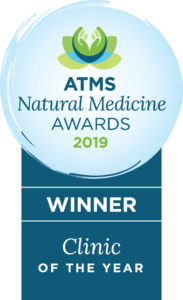- What’s Holding You Back From Reaching Your Weightloss Goals? - June 28, 2023
- What are the Natural Medicine Alternatives to Pain Medication? - June 20, 2023
- Keto for Epilepsy - May 24, 2023
If you’re anything like me, you may have experienced multiple moods and emotions during isolation. And comfort eating and overeating have definitely reared their ugly head early in isolation, and that’s ok.
Now we have had time to adjust to this ‘new normal’,
here are my 3 key tips for staying healthy in isolation
Keep food simple.
Just because your mate is instagramming their noteworthy recipes from the latest cookbook doesn’t mean you need to do the same.
Especially if you are busier than ever, take the pressure off!
- Aim to fill half of your plate with vegetables
- Ideally 30% of your plate should be a good quality protein (if you need help with what that is, I can teach you!).
- Meat (or meat alternative high in protein/fish) and 3 vegetables is a great fallback option
- Just eat REAL food. Get out of the cupboard and the packaged foods. Find the flavour in herbs and spices
- If finance allows order some meals from a home delivery service such as Dinner Ladies or Hello Fresh.
Eat enough – but not too much!
OK – let’s be honest, are you trying to do a 16 hour fast right now?
16 hour fasts aren’t for everyone! In particular those people who are stressed (um anyone home schooling their kids and working the same amount as before?!) because it can lead to a surge in cortisol which leads to FAT STORAGE.
An alternative is a 12 hour fast. Choose a time of night that you won’t eat past, say 8pm. And then don’t eat for another 12 hours. Clinically I find those people who have wobbly blood sugars and sugar cravings do far better on this fast than a longer one.
The other downfall in longer fasts is people may binge eat. They fast in the morning and then they are STARVING. INSATIABLE.
Leading to eating ALL of the things from the cupboard.
Try:
- Don’t allow yourself to eat past a certain time, say 8pm
Start your day with a healthy breakfast which contains protein AND carbohydrates and good quality fats – a good option is porridge with some fruit ,nuts and collagen OR some scrambled egg and vegetables
Here’s what an ideal plate should look like >>
- Include Protein. It keeps you fuller for longer, meaning you’ll eat less calorie dense foods which have little to no nutritional value
Check your carbohydrate intake!
A low-carbohydrate diet is not always required for weight loss and may be ineffective or harmful in some cases (speak to your practitioner).
I don’t want to demonise a whole macronutrient however, the amount and intensity of your exercise is the key factor to determine your carbohydrate needs.
- If you are generally sedentary and do not, or cannot exercise, a low-carb diet may help you lose weight without causing stress to your body
- Stear clear of packaged and processed foods full of empty calories
- Limit your alcohol intake
- Choose healthy carbohydrates such as Quinoa, brown rice, sweet potato, beetroot, parsnip and swede
Before I end this post I want to frame this article by saying, now is an ideal time to be mindful of your health and wellbeing, uncertain times requires us to look after ourselves!
Our health is a priority at this time, and part of that choosing foods and behaviours that benefit us.
Looking for more invaluable tips?
Join the VIP waitlist for my course, The Abundantly Healthy Woman – your ticket to vitality and balance. Discover insights into immunity and practical solutions for exhaustion, hormonal imbalances, and health confusion. Embrace vibrant living without extremes. Hurry, seats are limited!
Join the VIP waitlist on the journey to optimal wellness today!


